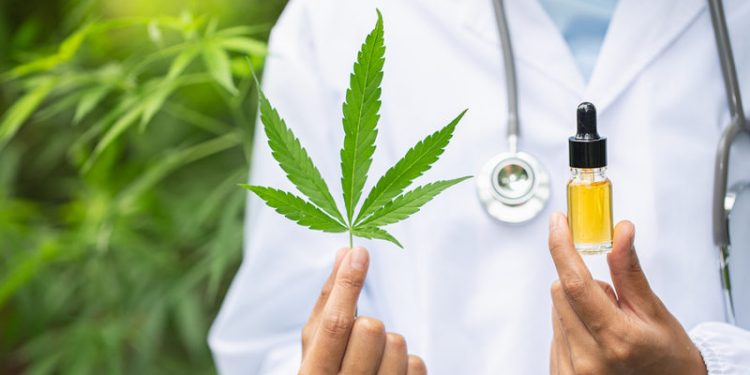If you're a physician and wondering if you should prescribe medical cannabis, consider a few things. Physicians should carefully evaluate the evidence and past patient experience before recommending a prescription. Additionally, they should be willing to advise their patients to cease cannabis use if it doesn't work for their condition. Contact a medical cannabis doctor to learn how you can receive help. What if I tell you that buying cannabis in Canada should not be that confusing checkout some of the best online cannabis dispensaries in Canada which are the most reliable!
Issues with prescribing medical cannabis
Despite the growing evidence of the benefits of medical cannabis, many physicians still resist the practice of prescribing it. Despite the legal barriers, patients still want to learn more about medical marijuana and the benefits it can provide. Because the medical community has been dismissive of cannabis for a long time, doctors are playing catch up with patients. Meanwhile, some patients have already started using medical marijuana and are unsure how to tell their doctors. In addition, some doctors have been reluctant to discuss marijuana with patients because they are uncertain about what to expect.
Although the legal issues are challenging, cannabis use as a medicine has a long tradition in Western medicine. It is increasingly recognized as a viable treatment for neurological and psychiatric conditions. As a result, cannabinoids are being considered for inclusion in pharmacopeia. In the meantime, the risks and benefits must be weighed against the difficult side effects of marijuana for patients' mental health.
Limits
There are many limitations associated with the use of medical marijuana, including stipulations regarding its storage, administration, and patient consent. While the use of marijuana for medical purposes is legal in most states, many states have yet to pass laws permitting doctors to prescribe it to patients. For these reasons, patients should consult a physician before taking any medical cannabis prescription. In some states, physicians must register with a local registry before prescribing the drug to patients.
Although the public has largely accepted medicinal marijuana use under the supervision of a physician, the implications of the drug in a hospital setting are complex. Therefore, the limits of medical marijuana prescribing are far from set in stone. Although the legalization of marijuana is advancing steadily, it has been challenging to find the appropriate physician. For this reason, physicians have been reluctant to write recommendations for their patients because they are afraid of the consequences.
Age limit
States have different age limits for patients requiring medical cannabis. They must be at least 21 years old to receive medical cannabis, and they must also have a health diagnosis to qualify for the program. Patients are required to show proof of having a medical condition before being prescribed medical cannabis.
While the application process may feel like a leap in the dark, doctors in Australia are fielding queries about medicinal cannabis every day. Australian doctors can attend educational events, take online courses, and register for accredited workshops conducted by the Royal Australian College of General Practitioners to learn more about this new practice. In addition to training, physicians who choose not to prescribe medicinal cannabis may refer their patients to a clinic where cannabis is available.
Delphi process
The Delphi process for prescribing medical cannabis involves the development of consensus-based recommendations for treating a variety of ailments. It focuses on safety and what experienced prescribers observe as effective. The process developed three treatment protocols: one for neuropathic pain, one for inflammatory pain, and one for mixed-type pain. This guideline is meant to help doctors treat patients experiencing various types of pain.
The modified Delphi process involves an interactive, systematic forecasting process, with a panel of experts reaching a consensus to make recommendations. The revised guidelines are based on the findings of a qualitative inventory. Based on these results, a draft of the revised guidelines was developed. The revised guidelines were then submitted to a two-round online consensus Delphi process.
The maximum THC content allowed for CBD-predominant strains is 1:10 with THC. The authors will continuously review the document, as new evidence becomes available. These recommendations represent a consensus that can be used to guide healthcare professionals in prescribing medical cannabis to patients.
The process for revising WHO ACMP guidelines is based on a modified Delphi method that involves a multi-professional expert panel of experts from different continents and countries. The panelists evaluated the candidate's low-value prescribing practices according to a set of criteria derived from peer-reviewed literature and medication safety guidelines. The process is thorough and allows for evolving debates. A final Advisory Meeting addresses disagreements and controversies.
What Are the Guidelines For Prescribing Medical Cannabis?
If you're a physician and wondering if you should prescribe medical cannabis, consider a few things. Physicians should carefully evaluate the evidence and past patient experience before recommending a prescription. Additionally, they should be willing to advise their patients to cease cannabis use if it doesn't work for their condition. Contact a medical cannabis doctor to learn how you can receive help.
Issues with prescribing medical cannabis
Despite the growing evidence of the benefits of medical cannabis, many physicians still resist the practice of prescribing it. Despite the legal barriers, patients still want to learn more about medical marijuana and the benefits it can provide. Because the medical community has been dismissive of cannabis for a long time, doctors are playing catch up with patients. Meanwhile, some patients have already started using medical marijuana and are unsure how to tell their doctors. In addition, some doctors have been reluctant to discuss marijuana with patients because they are uncertain about what to expect.
Although the legal issues are challenging, cannabis use as a medicine has a long tradition in Western medicine. It is increasingly recognized as a viable treatment for neurological and psychiatric conditions. As a result, cannabinoids are being considered for inclusion in pharmacopeia. In the meantime, the risks and benefits must be weighed against the difficult side effects of marijuana for patients' mental health.
Limits
There are many limitations associated with the use of medical marijuana, including stipulations regarding its storage, administration, and patient consent. While the use of marijuana for medical purposes is legal in most states, many states have yet to pass laws permitting doctors to prescribe it to patients. For these reasons, patients should consult a physician before taking any medical cannabis prescription. In some states, physicians must register with a local registry before prescribing the drug to patients.
Although the public has largely accepted medicinal marijuana use under the supervision of a physician, the implications of the drug in a hospital setting are complex. Therefore, the limits of medical marijuana prescribing are far from set in stone. Although the legalization of marijuana is advancing steadily, it has been challenging to find the appropriate physician. For this reason, physicians have been reluctant to write recommendations for their patients because they are afraid of the consequences.
Age limit
States have different age limits for patients requiring medical cannabis. They must be at least 21 years old to receive medical cannabis, and they must also have a health diagnosis to qualify for the program. Patients are required to show proof of having a medical condition before being prescribed medical cannabis.
While the application process may feel like a leap in the dark, doctors in Australia are fielding queries about medicinal cannabis every day. Australian doctors can attend educational events, take online courses, and register for accredited workshops conducted by the Royal Australian College of General Practitioners to learn more about this new practice. In addition to training, physicians who choose not to prescribe medicinal cannabis may refer their patients to a clinic where cannabis is available.
Delphi process
The Delphi process for prescribing medical cannabis involves the development of consensus-based recommendations for treating a variety of ailments. It focuses on safety and what experienced prescribers observe as effective. The process developed three treatment protocols: one for neuropathic pain, one for inflammatory pain, and one for mixed-type pain. This guideline is meant to help doctors treat patients experiencing various types of pain.
The modified Delphi process involves an interactive, systematic forecasting process, with a panel of experts reaching a consensus to make recommendations. The revised guidelines are based on the findings of a qualitative inventory. Based on these results, a draft of the revised guidelines was developed. The revised guidelines were then submitted to a two-round online consensus Delphi process.
The maximum THC content allowed for CBD-predominant strains is 1:10 with THC. The authors will continuously review the document, as new evidence becomes available. These recommendations represent a consensus that can be used to guide healthcare professionals in prescribing medical cannabis to patients.
The process for revising WHO ACMP guidelines is based on a modified Delphi method that involves a multi-professional expert panel of experts from different continents and countries. The panelists evaluated the candidate's low-value prescribing practices according to a set of criteria derived from peer-reviewed literature and medication safety guidelines. The process is thorough and allows for evolving debates. A final Advisory Meeting addresses disagreements and controversies.
























